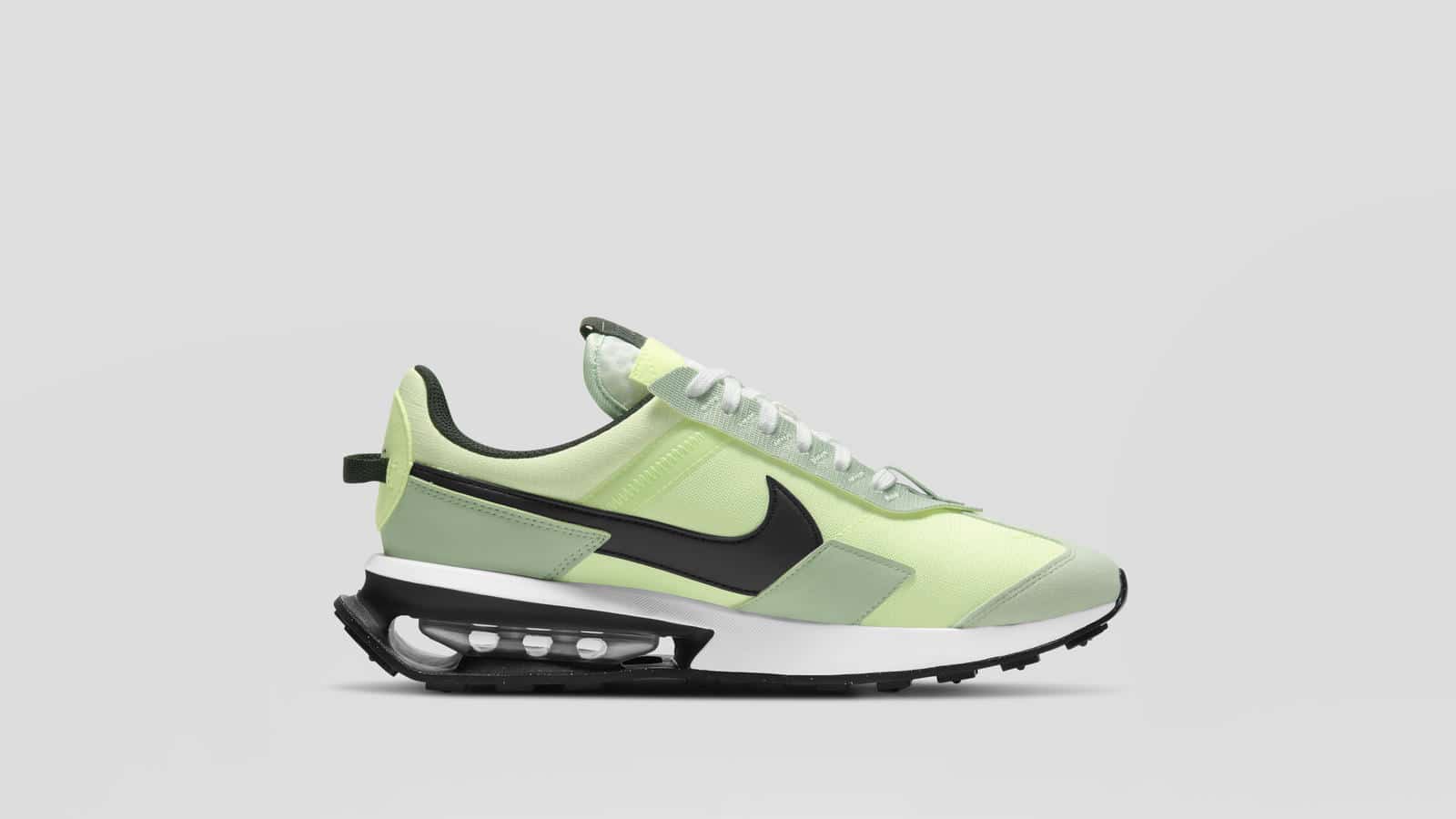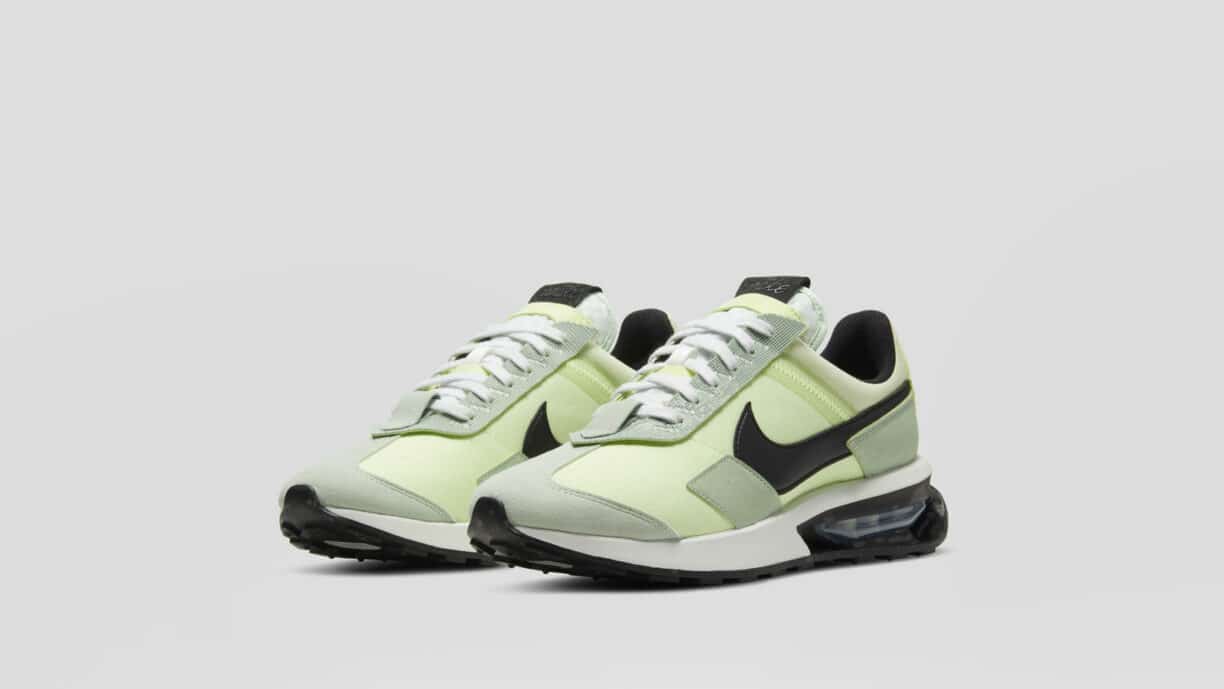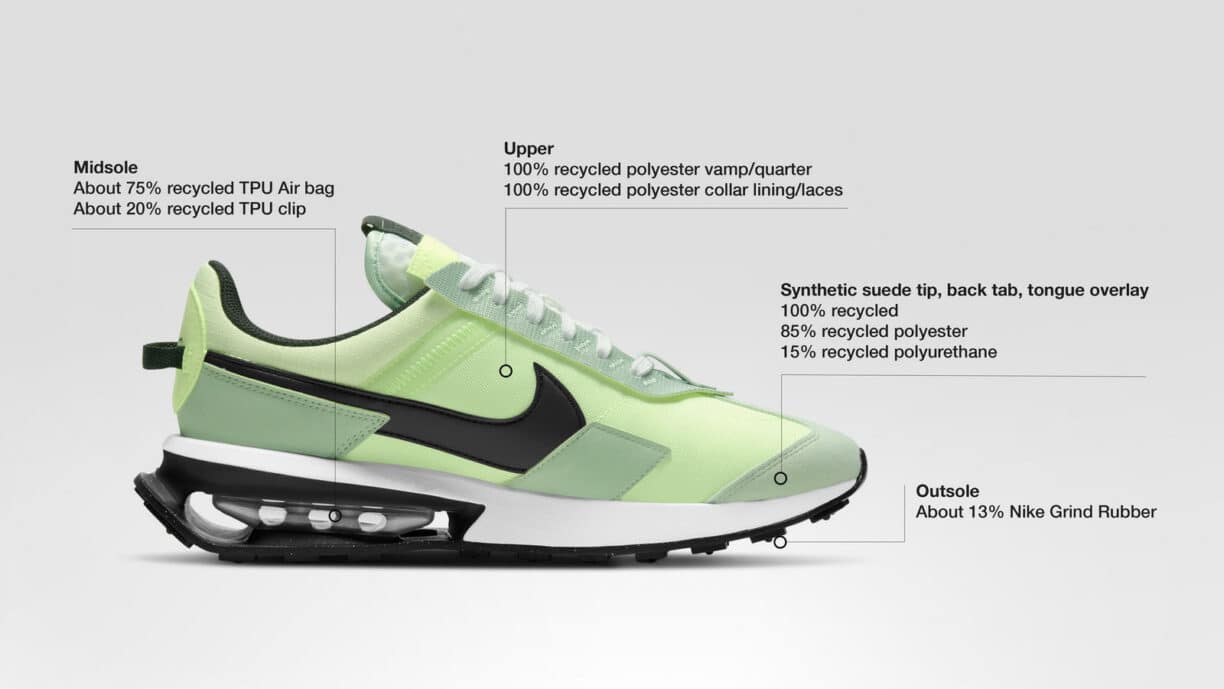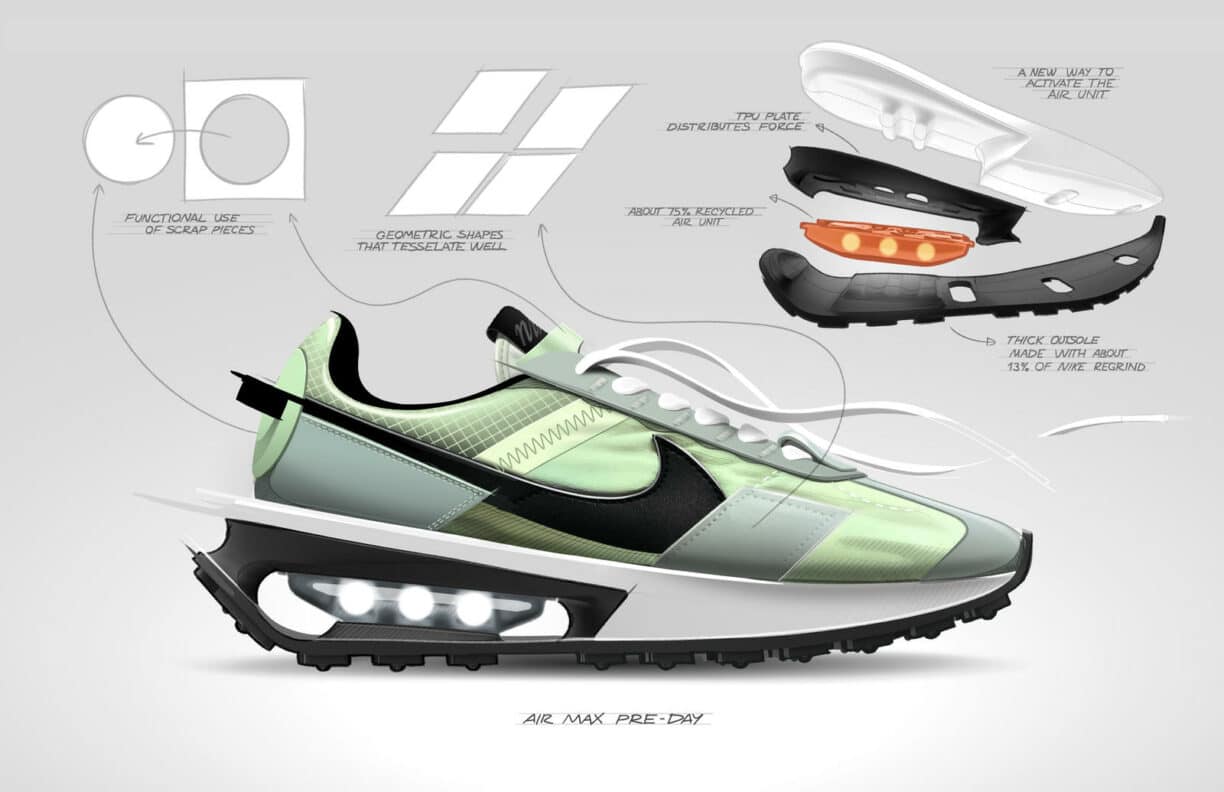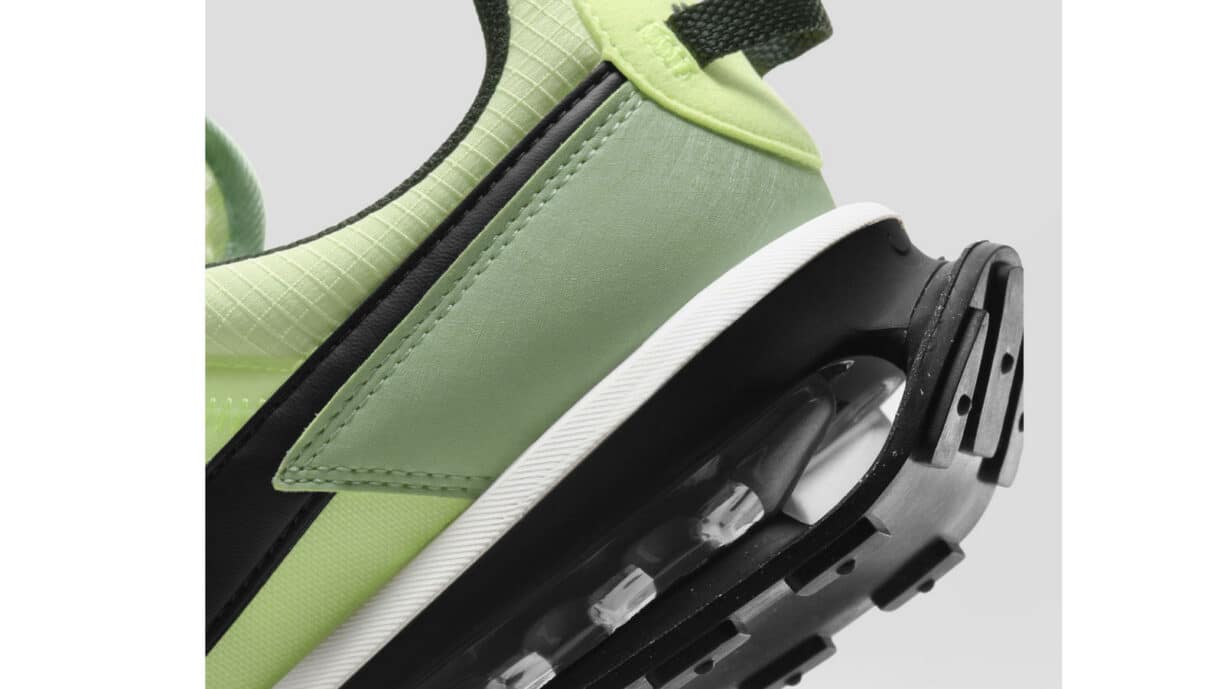With a stance reminiscent of Nike’s jogging shoe golden era (think the Daybreak, produced from 1979 to 1981) and a radical, visible Nike Air heel unit, the Nike Air Max Pre-Day breaks new ground in Air.
The shoe’s arresting aesthetic, a blend of the late-1970s and the 2020s, highlights a simplified design ethos that minimizes material waste with at least 20 percent recycled content by weight (the upper is 100 percent recycled polyester; the outsole about 13 percent Nike Grind Rubber) and positions the Air unit in an entirely new light.
© Nike
Fully exposed, the heel Air bag is the same one employed in current Air Max 1s, Air Max 90s, Air Jordan IIIs, IVs, Vs and VIs.
The difference? Rather than only visible through a window, the full Air unit is now exposed between the midsole and outsole.
© Nike
Beyond the visual impact of the engineering, this articulation of the Air unit also supports a new underfoot sensation.
Decreasing layers between foot and Air, and placing the unit between two hard surfaces, the Air Max Pre-Day achieves a more pronounced bounce with each walking stride.
With that breakthrough, the shoe considers the dawn of Air and honors decades of Nike experimentation and innovation in the cushioning.
While the Air-Sole debuted in the late ’70s with the Tailwind, its development as a Nike icon owes much to the continually progressive work of Air Manufacturing Innovation (Air MI).
© Nike
Air MI began life as Tetra Plastics, a St. Louis-area plastics manufacturer founded on four major principles: quality, service, innovation and engineering.
Tetra started working with Nike on Air-Soles in 1981. In 1986, the firm developed the Visi-Air tubing that made the Air Max 1 possible and from 1989 to 1991 pioneered the blow molding of Air bags, a process that has allowed for increased cushioning in visible Air shoes.
© Nike
The relationship between the two parties matured into Nike’s full acquisition of Tetra in 1991.
The last three decades of Air MI have been characterized by a consistent stream of innovation.
The evolution of Air is marked by breakthroughs in thermoforming, resulting in radical new Air bag shapes and advances in performance, and significant gains in sustainable manufacturing, such as the reuse of more than 90 percent of the waste from materials used for Air-Soles to make new, innovative cushioning systems.
In the Pre-Day, the promise of Nike Air registers yet another revolution. And rethinking the use of the popular visible Air unit offers a subtle reminder that a good idea can have several incarnations.
The Nike Air Max Pre-Day releases March 26 via SNKRS and at select global retailers.

